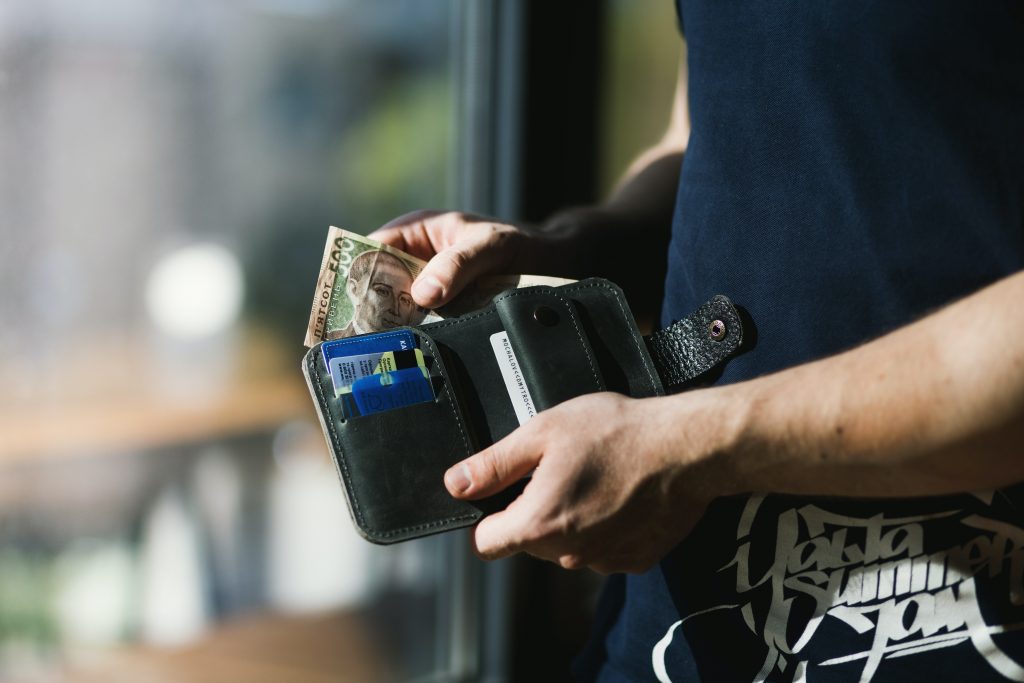A travel credit or debit card is one of the easiest ways to save money on your travels. Having a dedicated card for travel means less money lost on international transaction fees and conversions. Which means more money to spend having a great time! Not only that, but a travel card can also actually make you money while you’re spending. But should you choose a travel credit card or a travel debit card? Credit cards let you pay for your trip when you return, leaving your cash safely in your bank account. On the other hand, debit cards prevent you from accidentally splashing out more than you can afford. Read on for all you need to know about your best options for travel cards.
Why choose a travel credit or debit card?

Conversion rates and international transaction fees are the biggest killers when it comes to your travel savings. The value of your money at home fluctuates and can both rise and fall dramatically in comparison to other currencies. Your bank applies international transaction fees to all purchases made overseas with your usual card, and while the fee doesn’t seem like much (usually around 3% of the purchase) it quickly adds up. Choosing a travel credit card or a travel debit card that doesn’t charge international transaction fees can save you a significant amount of money! As well as saving money, choosing the right card can actually earn you money while you travel! Some cards offer rewards, like points, upgrades, freebies, and even cash.
Pros and cons of a travel debit card
Debit cards take money directly from your account within a few days of using the card. This makes it a good option for those who want to limit their spending. It’s easy to withdraw cash from ATMs with a debit card which is useful for those traveling in areas with cash-only establishments or limited card machines. Prepaid debit cards allow you to control your money from an app or portal on your phone. You can move a set amount from your main account to the travel card account. On the downside, limiting funds means that you may not have enough to fall back on in case of an emergency. It can also be easier for thieves to access your bank account if your card is stolen unless you freeze or cancel your card.
Pros and cons of a travel credit card
Unlike with a debit card, credit cards allow for much greater freedom with your spending limit. Depending on how high you set your credit limit, you can have a large number of funds to play with. The downside of using a credit card for travel is that it’s harder to use at an ATM, meaning that you’ll need to bring a finite amount of cash separately. It’s also tempting to spend more than you should, leading to a headache of a bill when you get back home.
The best travel debit card for Europeans 🇪🇺
The app-based Revolut offers a contactless debit card that is linked to a current account. There are no withdrawal fees for amounts up to €200 per month with the free card, €400 per month with Premium, and €600 per month with Metal. They offer mid-market exchange rates on foreign transactions without any markups for over 150 currencies.
The best travel credit and debit cards for the UK 🇬🇧
Credit: The Virgin Money Travel Credit Card has no overseas fees and a 12-month interest-free introductory period for purchases and balance transfers. This makes booking the initial trip and spending money abroad much easier. It’s also linked to Virgin Holidays so you can get travel discounts and cashback on travel insurance.
Debit: Starling Bank is a completely online banking service whose debit cards are entirely fee-free worldwide. There are no fees for transactions, purchases, or withdrawals, making it the cheapest option for using your money outside the UK. Manage your account on your phone through the bank’s app, where you can easily transfer money between your main account and your card.
The best travel credit and debit cards for Americans 🇺🇸
Credit: The Chase Sapphire Preferred card has amazing sign-up bonuses that can cover a free domestic flight. There are no foreign transaction fees and you can earn 2x points when you spend on dining and travel. This is an ideal card for those who travel often, especially for business.
Debit: Capital One’s 360 Checking Account includes a Mastercard debit card. With no minimum deposits or balance requirements, it’s an easy account to use for international travel. Capital One charges no foreign transaction fees and no ATM fees when used with an Allpoint ATM. The Allpoint app can locate over 55,000 ATMs on the network for easy worldwide access.
The best travel credit and debit cards for Australians 🇦🇺
Credit: The top perks of Bankwest’s Zero Mastercard Platinum are the complimentary overseas travel insurance and no foreign transaction fees. This card has no annual fees either, plus a 55-day interest-free period, and the option to convert your card to a contactless payment ring – a neat and stylish alternative to carrying around a card.
Debit: The Travelex Money Card is a prepaid Mastercard that you can top up through the Travelex website, app, or outlets. Ten different currencies are supported. Perks include the ability to lock-in exchange rates prior to your departure, easy switching between currencies, no international ATM withdrawal fees, and free wifi access through Boingo.
Safety tips

Tell your bank that you’ll be traveling. Contacting your card provider ahead of time reduces the risk of your transactions being wrongly flagged as fraudulent and denied. Call the customer service number for your bank and let them know you’ll be abroad so they can note it on your account.
Protect your stuff. Keep your cards and important documents safely on your person. This means stashing your cards in places that aren’t easily accessible for thieves. Avoid keeping your cards or wallet in your pocket and instead use a hidden money belt or strap. Keep your belongings close to you and be cautious in crowded places.
Always pay in the local currency. When paying with a card, some machines will recognize your card as foreign and offer to charge you in your own currency. Always choose to pay the local amount, as the exchange rate will often be significantly higher on the card terminal.
Bring back up cash. Always have a back up by bringing some cash with you. Never rely exclusively on cards, as they can be lost or stolen. You may also enter cash-only establishments. Keep your cash safe by dividing it between your wallet and a few hiding spots like your luggage and hotel room. That way, if the worst happens you’ll always have a small amount of money with you.


